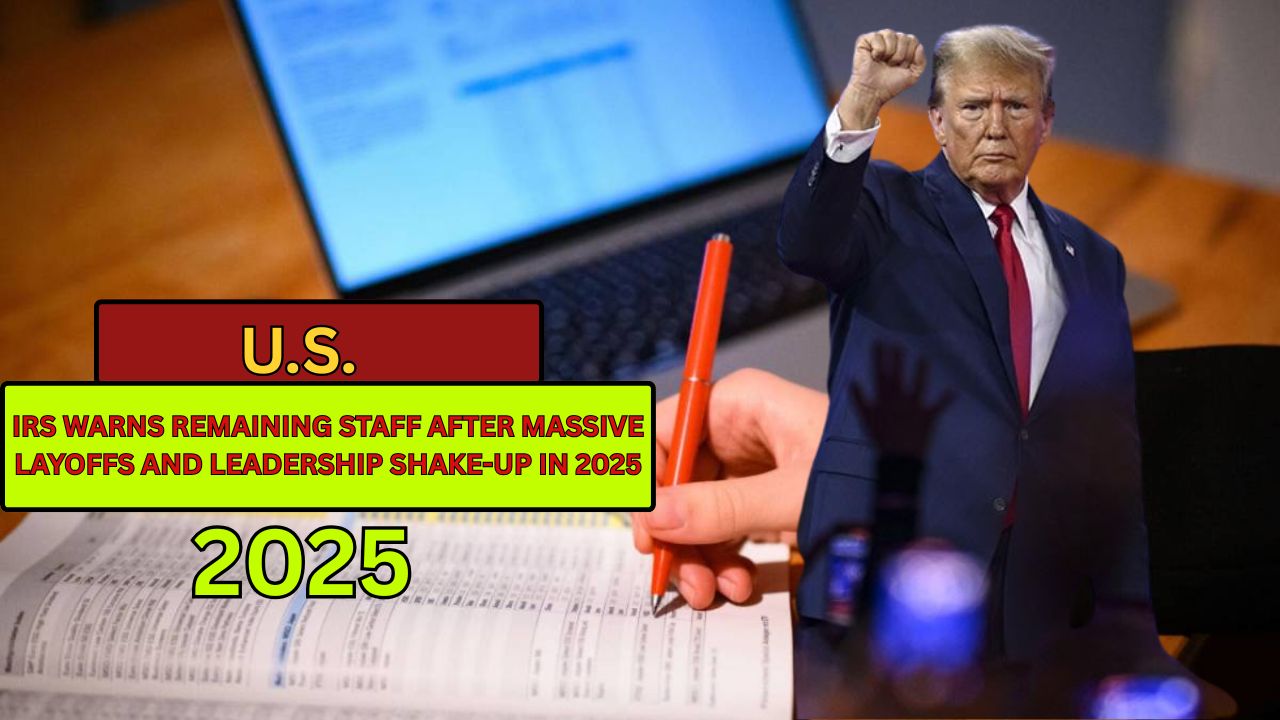The Internal Revenue Service (IRS) is in a state of upheaval following an unprecedented round of layoffs, senior leadership changes, and operational challenges. After announcing plans to cut up to 40% of its workforce by the end of 2025, the IRS has now issued a stern internal memo to its remaining employees, warning them to maintain professionalism and integrity as the agency navigates a turbulent transition.
Workforce Cuts Rock the IRS
The restructuring effort—driven in part by the federal Department of Government Efficiency (DOGE), an initiative led by Elon Musk under the Trump administration—is set to shrink the IRS’s employee count from around 102,000 to between 60,000 and 70,000 workers.
Already, roughly 11% of staff have departed, with auditors among the hardest hit, experiencing a staggering 31% reduction according to Federal News Network.
The layoffs come shortly after the conclusion of the 2025 tax filing season, sparking concerns over the IRS’s ability to fulfill its obligations. A leaked memo sent to staff outlined expectations for those remaining, warning against misconduct and emphasizing the importance of upholding the agency’s reputation amid political and public scrutiny.

Leadership Chaos and Political Pressure
Leadership instability has only compounded the uncertainty within the agency. In a span of weeks, the IRS has cycled through multiple acting commissioners. The most recent, Michael Faulkender, replaced Gary Shapley—whose brief appointment had been influenced by DOGE’s leadership reshuffle. The rapid turnover has alarmed watchdog groups and tax professionals who depend on stable guidance from the IRS, as reported by Politico.
Political interference from DOGE has also raised eyebrows, particularly around Musk’s reported attempts to access sensitive taxpayer data and dismantle modernization efforts, including the termination of the IRS’s Direct File pilot program. This move had been praised by advocates for low-income taxpayers but was shuttered despite successful test results.
Operational Breakdown and RTO Challenges
Further complicating operations is the mandatory return-to-office (RTO) policy, which has led to issues such as insufficient workspace, inadequate IT infrastructure, and lagging productivity. Many employees returning to outdated equipment and limited support have voiced frustration, and unions are reportedly exploring formal grievances.
On the technology front, modernization plans have been derailed after Congress rescinded previously allocated funding. This threatens the long-term effectiveness of IRS systems that were set to streamline services, improve taxpayer interaction, and enhance audit capabilities.
Impact on Taxpayers: Delays and Reduced Enforcement
The effects of these cuts are likely to be felt by millions of American taxpayers. With fewer auditors and customer service representatives, delays in tax return processing, refund issuance, and call center responses are almost certain.
The reduction in audit staff is also expected to result in diminished oversight, potentially encouraging tax evasion and lowering federal revenue intake. A report from CBS News noted that with such a steep drop in auditors, enforcement efforts may be reduced by billions annually.
Data Sharing Controversy
Amid these structural issues, the IRS has also come under fire for entering a data-sharing agreement with the Department of Homeland Security. According to AP News, this agreement has enabled immigration enforcement actions against undocumented individuals using IRS-provided data—raising concerns about taxpayer privacy and the erosion of trust in the agency.

Advocacy groups and some lawmakers argue that the IRS should serve as a financial administrative body, not an enforcement arm of immigration policy. Civil liberties organizations are now calling for greater oversight of how taxpayer information is used.
Conclusion
The IRS, once considered one of the most secure and structured federal agencies, is now facing an identity crisis. With budget constraints, mass layoffs, political influence, and operational dysfunction, its ability to serve the public and maintain taxpayer trust is under serious threat.
Taxpayers and professionals alike are encouraged to monitor updates closely. To learn more or access IRS services directly, visit the official IRS website. For information on federal workforce policy, visit OPM.gov.
This article has been carefully fact-checked by our editorial team to ensure accuracy and eliminate any misleading information. We are committed to maintaining the highest standards of integrity in our content.

Outside of work, he enjoys playing chess, following cricket, and writing short stories. His commitment to integrity and in-depth analysis strengthens OTE News’ mission of providing trustworthy journalism.




